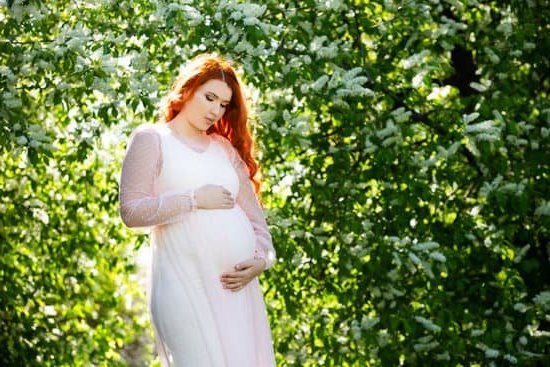Is diarrhea normal in early pregnancy? Many women experience a range of unusual symptoms during the early stages of pregnancy, and diarrhea is one that often raises questions and concerns. Understanding the symptoms of early pregnancy is important for expectant mothers to ensure they can effectively manage any discomfort or worrisome issues that may arise.
Early pregnancy brings about numerous changes in the body, including hormonal fluctuations, which can impact the digestive system. This can result in symptoms such as nausea, vomiting, constipation, and yes, even diarrhea. In this article, we will explore the causes of diarrhea in early pregnancy, whether it is a common symptom in the first trimester, how to manage it, when to seek medical attention, and tips for prevention.
It’s essential for pregnant women to be informed about these potential symptoms to alleviate any worries or uncertainties. By understanding what is considered normal and what warrants medical attention, expectant mothers can navigate their pregnancies with greater peace of mind. Let’s delve into the various aspects of diarrhea in early pregnancy and gain a better understanding of this common but often perplexing symptom.
What Causes Diarrhea in Early Pregnancy?
Diarrhea in early pregnancy can be a common symptom that many women experience. The changing hormones and physical changes in the body can lead to gastrointestinal issues, including diarrhea. Understanding the causes of diarrhea in early pregnancy can help expectant mothers manage this symptom effectively.
Hormonal Changes
One of the main reasons for diarrhea in early pregnancy is the hormonal changes that occur in the body. The increase in hormone levels, such as progesterone, can affect the digestive system and lead to more frequent bowel movements. This can result in loose stools and diarrhea for some women.
Stress and Anxiety
The emotional and psychological stress of being pregnant can also contribute to diarrhea. Many women experience anxiety and worry about their pregnancy, which can impact their digestive system. Stress can cause an imbalance in gut bacteria and lead to gastrointestinal issues, including diarrhea.
Dietary Changes
Changes in dietary habits during early pregnancy can also trigger diarrhea. For some women, food aversions or cravings may lead to consuming different types of foods or avoiding certain foods altogether. Additionally, prenatal vitamins or supplements with iron content may cause digestive upset, leading to diarrhea. Making significant changes to one’s diet during early pregnancy may also impact bowel movements and contribute to diarrhea symptoms.
Understanding these potential causes of diarrhea in early pregnancy is essential for expectant mothers so they can take proactive steps in managing this common symptom. It is important to consult a healthcare provider if experiencing prolonged or severe bouts of diarrhea during early pregnancy.
Is Diarrhea a Common Symptom in the First Trimester?
Diarrhea is a common symptom in the first trimester of pregnancy. Many women experience gastrointestinal issues, including diarrhea, as their bodies undergo hormonal changes and adapt to the pregnancy. These changes can lead to an increase in bowel movements and changes in stool consistency, resulting in diarrhea. While it may be uncomfortable and inconvenient, experiencing diarrhea in early pregnancy is usually nothing to be overly concerned about.
The exact cause of diarrhea in early pregnancy can vary, but it is often linked to hormone fluctuations, prenatal vitamins, and increased sensitivity of the digestive system. The hormone progesterone, which is essential for maintaining a healthy pregnancy, can also relax the muscles of the digestive tract, leading to more frequent bowel movements and softer stools.
In addition to hormonal changes, dietary habits and food sensitivities may also contribute to diarrhea during early pregnancy. Some women may find that certain foods trigger their symptoms, such as spicy or greasy foods, dairy products, or caffeine. It’s important to pay attention to your diet and make note of any specific triggers that exacerbate your diarrhea symptoms.
How to Manage Diarrhea During Early Pregnancy
Diarrhea is a common symptom experienced by many women during early pregnancy. While it can be uncomfortable and concerning, there are ways to manage this issue to ensure the health and well-being of both the mother and the baby. Here are some tips for managing diarrhea during early pregnancy:
Stay Hydrated
One of the most important things to do when experiencing diarrhea during early pregnancy is to stay hydrated. Diarrhea can lead to dehydration, which can be dangerous for both the mother and the baby. It is important to drink plenty of water and other clear fluids such as broth, herbal tea, or electrolyte drinks. Avoiding caffeine and sugary beverages is also recommended.
Eat a Bland Diet
When dealing with diarrhea in early pregnancy, it is best to stick to a bland diet that is easy on the stomach. This may include foods like rice, bananas, applesauce, toast, boiled potatoes, and plain chicken. These foods are less likely to irritate the digestive system and can help firm up stools.
Consider Probiotics
Taking probiotics may help regulate digestion and alleviate symptoms of diarrhea in early pregnancy. Probiotics are beneficial bacteria that can support gut health and improve digestive function. It is important to consult with a healthcare provider before taking any supplements during pregnancy, including probiotics.
By following these strategies, women can effectively manage diarrhea during early pregnancy and reduce discomfort while ensuring their own health as well as that of their developing baby. Remember that if diarrhea persists or worsens, it is important to seek medical attention for further evaluation and treatment options.
When to Seek Medical Attention for Diarrhea in Early Pregnancy
Experiencing diarrhea in early pregnancy can be concerning for many women. While it is normal to experience some digestive changes during this time, persistent or severe diarrhea may require medical attention. It is important for pregnant women to be aware of when to seek help from a healthcare provider for this symptom.
If you are experiencing frequent and watery stools, along with symptoms such as dehydration, fever, severe abdominal pain, or blood in the stool, it is crucial to contact your healthcare provider. These could be signs of a more serious condition that needs immediate medical attention. In some cases, diarrhea in early pregnancy can be a result of an infection or food poisoning, which may pose risks to both the mother and the developing baby.
Additionally, if you are finding it difficult to keep fluids down due to vomiting or are noticing a decrease in urine output, it is important to seek medical help promptly. Dehydration can occur quickly when experiencing diarrhea, especially during pregnancy when the body’s fluid needs are increased. Your healthcare provider can assess your condition and provide guidance on how to manage and treat diarrhea while pregnant.
In some cases, your healthcare provider may recommend over-the-counter medications or prescribe specific treatments to alleviate your symptoms and prevent complications during early pregnancy. It is always best to consult with a healthcare professional before taking any medications while pregnant, as certain medications may not be safe for the developing baby.
Tips for Preventing Diarrhea in Early Pregnancy
During early pregnancy, many women experience digestive issues such as diarrhea. While this can be a normal symptom, there are ways to prevent or minimize this discomfort. Here are some tips for preventing diarrhea in early pregnancy:
1. Stay Hydrated: Drinking plenty of water is essential for overall health and can help prevent dehydration caused by diarrhea. Aim for at least 8-10 glasses of water per day.
2. Eat Small, Frequent Meals: Consuming smaller meals throughout the day can help with digestion and prevent gastrointestinal upset. Avoiding large, heavy meals can also reduce the risk of developing diarrhea.
3. Avoid Trigger Foods: Certain foods may trigger diarrhea or digestive distress during pregnancy. It’s important to pay attention to your body’s response to different foods and avoid those that seem to cause issues.
4. Practice Good Hygiene: Pregnancy can weaken the immune system, making expectant mothers more susceptible to foodborne illnesses that can lead to diarrhea. It’s important to practice good hygiene when handling and preparing food to minimize the risk of bacterial contamination.
5. Manage Stress: High levels of stress can contribute to digestive issues such as diarrhea. Finding healthy ways to manage stress, such as exercise, relaxation techniques, or counseling, can help prevent gastrointestinal upset during pregnancy.
By following these tips, pregnant women can take proactive steps to minimize the occurrence of diarrhea in early pregnancy and promote overall digestive health.
Other Common Digestive Issues in Early Pregnancy
During early pregnancy, women may experience a range of digestive issues, in addition to diarrhea. These issues can be uncomfortable and even concerning for expectant mothers, but it’s important to remember that many of them are a normal part of the body’s response to pregnancy.
Constipation
Constipation is another common digestive issue that some women may experience in early pregnancy. This can be attributed to hormonal changes, prenatal vitamins, or simply the pressure of the growing uterus on the bowel. Constipation can lead to discomfort and bloating, but there are ways to manage and prevent it.
Heartburn and Indigestion
Heartburn and indigestion are also frequent complaints during early pregnancy, often caused by the relaxation of the muscle that separates the esophagus from the stomach (sphincter). This allows stomach acid to rise into the esophagus, causing a burning sensation. Eating smaller meals, avoiding trigger foods and beverages, and staying upright after eating can help alleviate these symptoms.
Nausea and Vomiting
Nausea and vomiting, commonly known as morning sickness, is one of the most well-known symptoms of early pregnancy. While not directly related to digestion, these symptoms can significantly impact a woman’s ability to eat and keep food down. It is important for expectant mothers experiencing severe or prolonged nausea and vomiting to seek medical attention for dehydration and nutrition concerns.
Understanding that these digestive issues are normal occurrences during early pregnancy can bring some comfort to expecting mothers. However, if any symptom becomes severe or persistent it’s always best to consult with a healthcare professional for guidance on managing discomfort and ensuring that both mother and baby remain healthy throughout pregnancy.
Conclusion
In conclusion, experiencing diarrhea in early pregnancy is not uncommon and can be caused by a variety of factors, including hormonal changes, dietary adjustments, and increased stress. While it is normal for some women to experience diarrhea in the first trimester, it is important to monitor the frequency and severity of this symptom.
If you find yourself wondering “is diarrhea normal in early pregnancy,” know that while it can be a common occurrence, persistent or severe diarrhea should not be ignored.
It is important to understand the potential causes of diarrhea during early pregnancy, such as hormonal fluctuations and dietary changes. Additionally, managing diarrhea through hydration, dietary modifications, and stress reduction techniques can provide relief for many expectant mothers. However, if diarrhea persists or becomes severe, it is crucial to seek medical attention to ensure the health and well-being of both the mother and the developing fetus.
In summary, while experiencing occasional bouts of diarrhea may be considered normal in early pregnancy, it is essential to recognize when to seek medical advice. Knowing how to manage and prevent diarrhea, as well as being aware of other common digestive issues in early pregnancy, will help expectant mothers navigate this stage of their journey with confidence and peace of mind.
Frequently Asked Questions
Why Am I Having Diarrhea in Early Pregnancy?
Diarrhea in early pregnancy can be caused by hormonal changes, increased intake of prenatal vitamins, or simply the body’s reaction to pregnancy. It can also be a sign of a bacterial or viral infection.
How Many Weeks Pregnant Do You Get Diarrhea?
Diarrhea can occur at any point during pregnancy, not just in the early stages. However, it is more common in early pregnancy due to hormonal changes and increased sensitivity of the digestive system.
Is It Normal to Have an Upset Stomach During Early Pregnancy?
Yes, it is normal to have an upset stomach during early pregnancy. Hormonal changes and an increase in progesterone levels can cause digestive issues such as nausea, vomiting, and diarrhea. Additionally, the expanding uterus can put pressure on the stomach and intestines, leading to discomfort.

Welcome to my fertility blog. This is a space where I will be sharing my experiences as I navigate through the world of fertility treatments, as well as provide information and resources about fertility and pregnancy.





